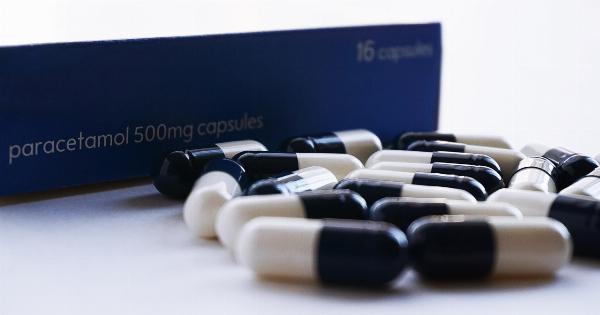Vitamins are essential nutrients that our bodies need to function properly. Without them, we can experience a wide range of symptoms and health problems. If you’re experiencing any of the symptoms below, you may be deficient in one or more vitamins.
It’s important to talk to your doctor if you suspect a vitamin deficiency, as they can run tests and recommend supplements or dietary changes to help address the issue.
Skin Issues
1. Dry, itchy skin
2. Acne
3. Slow wound healing.
These symptoms may be a sign of a deficiency in vitamin A, vitamin C, or zinc. Vitamin A is important for skin health and wound healing, while vitamin C helps to produce collagen, which is essential for healthy skin.
Zinc is required for proper immune function, which can help to prevent skin infections.
Joint Pain
4. Joint pain
5. Muscle weakness
6. Difficulty walking.
These symptoms may be a sign of a deficiency in vitamin D, which is important for healthy bones and muscles. Without enough vitamin D, bones can become brittle and weak, which can lead to joint pain and difficulty walking.
Fatigue
7. Fatigue
8. Muscle weakness
9. Pale skin.
These symptoms may be a sign of anemia, which can result from a deficiency in iron, vitamin B12, or folate. Iron is required for the production of red blood cells, while vitamin B12 and folate are needed for the proper functioning of those cells.
Without enough red blood cells, the body can’t get enough oxygen, which can lead to fatigue, weakness, and pale skin.
Digestive Issues
10. Diarrhea
11. Constipation
12. Nausea or vomiting.
These symptoms may be a sign of a deficiency in several vitamins, including vitamin D, vitamin B12, and folate. Vitamin D can help with the absorption of calcium, which is important for healthy bones and teeth.
Vitamin B12 and folate are important for proper digestion and can help alleviate symptoms like diarrhea and constipation.
Mood and Mental Health
13. Depression
14. Anxiety
15. Brain fog.
These symptoms may be a sign of a deficiency in several vitamins, including vitamin D, vitamin B12, and folate. Vitamin D is important for mood regulation, while vitamin B12 and folate can help protect against cognitive decline.
Immune System
16. Frequent infections
17. Slow wound healing
18. Mouth ulcers.
These symptoms may be a sign of a deficiency in several vitamins, including vitamin C, vitamin A, and zinc. Vitamin C is required for proper immune function, while vitamin A is important for the production of white blood cells.
Zinc is also important for immune function and can help speed up wound healing and prevent mouth ulcers.
Vision Issues
19. Night blindness
20. Dry eyes
21. Blurry vision.
These symptoms may be a sign of a deficiency in vitamin A, which is important for vision health. Vitamin A is required for the production of a special pigment in the eye that helps us see in low light conditions.
Bone Health
22. Brittle bones
23. Difficulty walking
24. Muscle weakness.
These symptoms may be a sign of a deficiency in several vitamins, including vitamin D, calcium, and vitamin K.
Vitamin D and calcium are important for healthy bones, while vitamin K helps to regulate calcium in the body and is essential for bone metabolism.
Hair and Nail Health
25. Weak or brittle nails
26. Hair loss
27. Slow hair growth.
These symptoms may be a sign of a deficiency in several vitamins, including biotin, vitamin D, and iron. Biotin is important for healthy hair and nails, while vitamin D and iron are both necessary for healthy hair growth.
Weight Issues
28. Difficulty losing weight
29. Weight gain
30. Increased appetite.
These symptoms may be a sign of a deficiency in several vitamins, including vitamin D, vitamin B12, and iron. Vitamin D is important for weight management and can help reduce fat accumulation.
Vitamin B12 and iron are essential for healthy metabolism and can help regulate appetite and energy levels.




























